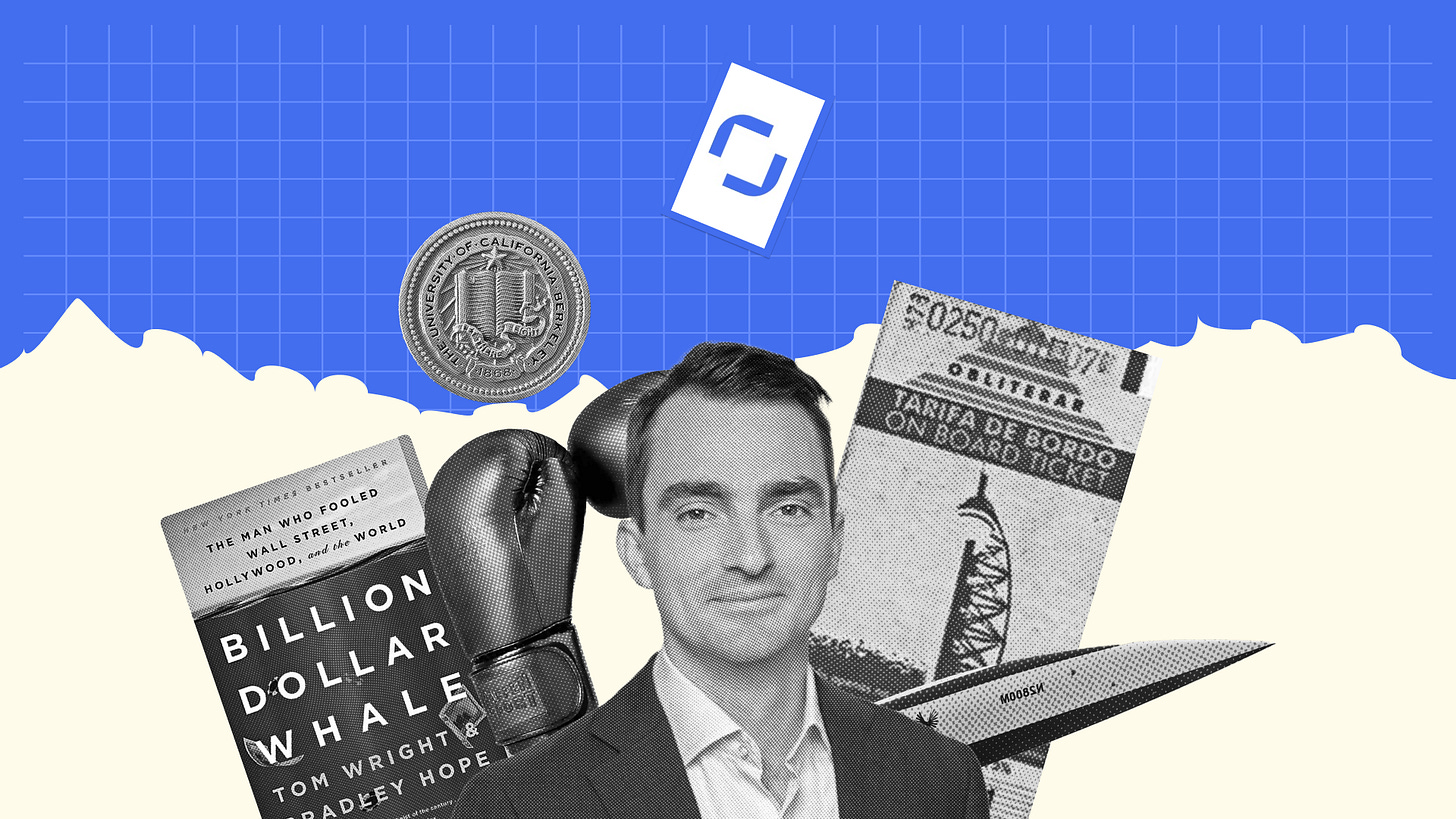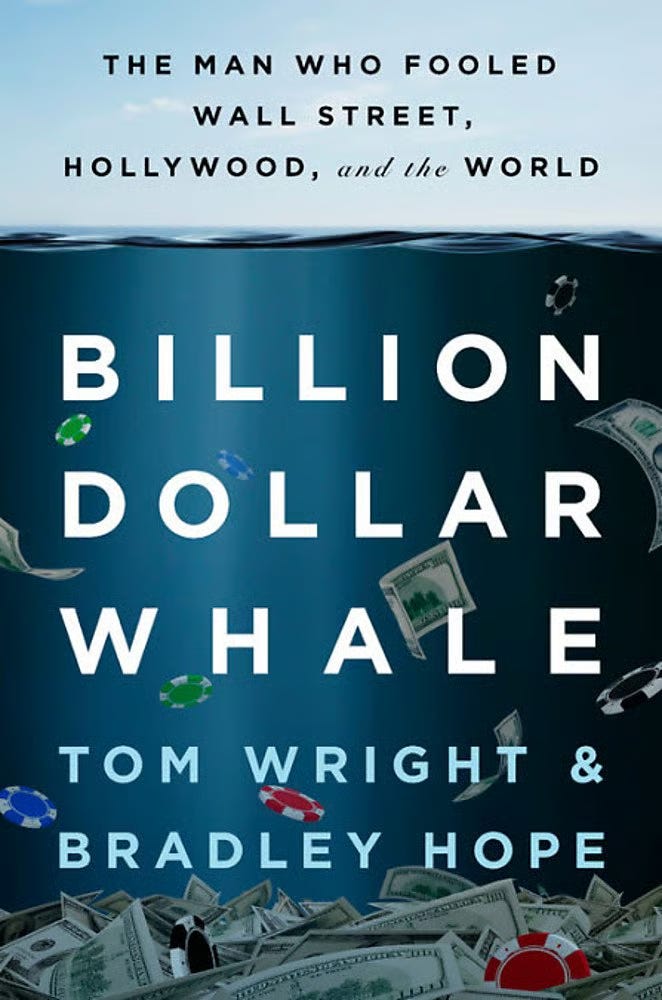Xan Wood - Canvas Prime
"The best partners are ‘long-term greedy’."
Connect with Xan
Email: xan@canvas.vc
Blog: https://built-by-berkeley.beehiiv.com/subscribe
LinkedIn: https://www.linkedin.com/in/xanwood/
VC Uncovered's View
In a venture landscape often perceived as insular, Xan Wood brings a refreshingly global perspective forged across continents and asset classes. His journey from private equity in Asia to launching a student fund at Berkeley, and now investing in AI-driven fintech and healthtech at Canvas Prime, embodies the unconventional path many new-wave VCs are carving out.
Xan’s emphasis on execution, trust, and being "long-term greedy" resonates deeply with our mission at VC Uncovered. It challenges the notion that venture is solely about quick wins or pattern-matching familiar profiles. Instead, he highlights the importance of observing how founders operate and build relationships, a hands-on approach that contrasts sharply with the detached, committee-driven decisions often seen in larger, slower funds.
His background gives him a unique lens, viewing early-stage growth ventures through the prism of emerging markets PE: navigating uncertainty, piecing together incomplete information (the “Mosaic theory" in action), and prioritizing relationships.
This isn't just about writing checks; it's about understanding the "real truth behind the numbers" and partnering with founders to navigate the inevitable twists and turns. By spotlighting investors like Xan, we aim to showcase how diverse experiences and a commitment to diligent follow-through are reshaping what successful venture capital looks like.Meet Xan
Q: If you could be anywhere, eating, drinking, and reading whatever you like most, where would you be and what would those things be?
A: Walking around Lisbon, Portugal. Portugal is where my wife is from, so it holds a special place in my heart. I would be drinking a cappuccino and reading Billion Dollar Whale, a fantastic piece of investigative journalism and a nail-biting story.
Key Quotes
"The best partners are ‘long-term greedy’.”
"Early-stage venture is the ultimate exercise of Mosaic theory as you piece together as clear a picture as possible."
"In early growth investing, there’s the numbers and then there’s the truth behind the numbers, and then the real truth behind the numbers."
“Just do what you say.”
"Ghosting... A 'no' is better than silence."
Original Responses (Lightly Edited for Clarity and Flow)
Background and Personal Journey
Experiences Shaping My Investment Approach
I’ve lived in six countries (UK, USA, Thailand, Singapore, Vietnam, and Hong Kong) and have made investments in over 20 countries. The biggest lesson has been about people and trust. No matter where you are, there are amazing people who can achieve great things. The key is working with those you can trust, people who believe in win-win outcomes.
You shouldn’t take people at face value; you need to observe how they execute, how quickly they move, and how they iterate and deliver. Underpinning all of this is trust and transparency. The best partners are ‘long-term greedy’. They believe in compounding value over time to create massive outcomes.
One experience that shaped this perspective happened when I was 18, starting a large events business in the UK during my undergrad. We organized weekly events and larger one-off events, including performances by artists like Kygo, for crowds of up to 5,000. I wanted to expand into boxing and ended up partnering with Bradley Walsh, a reformed gangster once labeled “one of the deadliest men” in Britain, who had turned his life around mentoring at-risk youth. Together, we launched a boxing event that I ran for seven years, even after selling the main events business. This taught me that unlikely partnerships, built on mutual respect and aligned goals, can yield incredible results.
Moment Inspiring Venture Capital Career
Coming from a private equity background in emerging markets, I initially thought I'd pursue buyout investing in the US. However, upon arriving at the University of California, Berkeley for my MBA, I partnered with friends to raise a $1 million fund from classmates. We invested small amounts in over 30 pre-seed and seed-stage companies founded by entrepreneurs from Berkeley. This experience built my venture network and shifted my perspective.
I realized venture capital shares much in common with private equity in emerging markets:
Things constantly go wrong: Growth isn't linear. Value comes from helping companies navigate challenges and adapt.
Asymmetric information: Unlike public markets, transparency is limited. The job involves piecing together disparate information (applying the Mosaic theory) to understand a company's present state and future trajectory.
Relationships are fundamental: This holds true universally, but especially in venture and emerging markets.
This understanding made venture, particularly early growth investing (Series A/B), where Canvas Prime focuses, feel like a natural fit. This stage is more operational than pre-seed or seed investing, allowing me to leverage the investing and operating experience I gained across Asia and the UK.
Balancing Intuition with Data
In early growth investing, you encounter the numbers, the truth behind those numbers, and then the real truth behind them. My background in private equity and as a CFA Charterholder provides a quantitative foundation; I know how to dissect metrics through cohort analysis and performance indicators. While I weigh this analysis, numbers at the earliest stages only reveal part of the picture.
It's crucial to delve into the context behind decisions. For instance, did the founder intentionally sacrifice short-term, smaller-ACV revenue to secure larger, long-term contracts? At Canvas Prime, we invest significant time talking to customers. We want to confirm the team is addressing an urgent pain point and genuinely listening and iterating based on feedback. Sometimes, a product solves a completely different problem for a customer than the founder initially intended.
We see companies experiencing breakneck growth, but not all growth is sustainable. Some is merely "sugar", short-term revenue unlikely to last. The challenge lies in distinguishing genuine traction from fleeting gains. Not all Annual Recurring Revenue (ARR) is created equal, particularly when various revenue types are being repackaged under the ARR label.
Best Advice Received
“Just do what you say.”
It sounds deceptively simple, but people often chase flashy moves while under-prioritizing follow-through. Consistent execution unlocks significant opportunities. If someone commits to an introduction, follow up. If you promise to do something, deliver.
Consistently doing what you say compounds over time, building trust, strengthening your network, and ultimately leading to better outcomes.
Philosophy and Insights
Values When Working with Founders
A bias for action and clock speed are critical, especially at the early stages. Founders must execute quickly and efficiently. This becomes particularly interesting at the Series A and B stages, where Canvas Prime invests. I can meet companies earlier, get acquainted with teams over time, and observe their execution consistency and speed over a sustained period before potentially investing.
Approach to Risk
Risk assessment is multifaceted; different investment strategies carry distinct risks and require tailored frameworks. Private credit, for example, emphasizes downside protection due to capped upside potential. Venture capital, conversely, relies on outlier returns. Achieving power-law outcomes necessitates taking calculated risks on companies with the potential to become category-defining.
While you can attempt to mitigate risk through pricing, market selection, or other levers, venture inherently rewards tail outcomes. Deals aren't pursued simply because they appear cheap or "de-risked." They are pursued based on the conviction that they can fundamentally reshape a category.
Measuring Success Beyond Returns
Are you having fun?
Financial returns serve as a scorecard, but ideally, the daily grind shouldn't feel like work because you genuinely enjoy what you do. That's my current experience, and I hope it continues throughout my career.
The real reward lies in aligning your work with your passions and partnering with ambitious individuals striving to reshape the world according to their vision. The constant context-switching between industries, ideas, and business stages is also intellectually stimulating.
Trends and Future Vision
Exciting Trends and Technologies
At Canvas Prime, we’re seeing significant improvements in operational infrastructure within digital health and fintech. AI is notably transforming areas like healthcare revenue cycle management and banking compliance, streamlining repetitive tasks and unlocking substantial cost savings.
Selfishly, though it's outside my investment focus, I'm excited by the renewed interest in accelerating air travel. Companies like Boom recently achieved breakthroughs, breaking the sound barrier in tests. Having missed the Concorde era and with family spread across the UK, Australia, and Portugal, I'd personally love to see those flight times drastically reduced.
Improving the VC Ecosystem
Ghosting. It occurs on both sides – founders and investors. Whether providing feedback or simply stating you're not moving forward, basic courtesy demands a response. This is particularly true when an introduction comes via another investor. It doesn't require a lengthy email; a brief note suffices. I once cold-emailed Mike Moritz, a legendary venture investor. He declined but took the time to reply. That gesture stuck with me. A clear “no” is always preferable to silence.
Challenges for Early-Stage Founders
Distribution. As building software becomes progressively easier, effective distribution and Go-To-Market strategies become key differentiators. A valuable investor should offer unique insights into various approaches. Crucially, founders need execution speed and a willingness to test different channels, even counterintuitive ones, to discover what works. Some might dismiss channels like direct mail or TV ads as outdated, but they could be highly effective for specific products today. It's about trying things, challenging generalizations, and doubling down when something shows promise.









